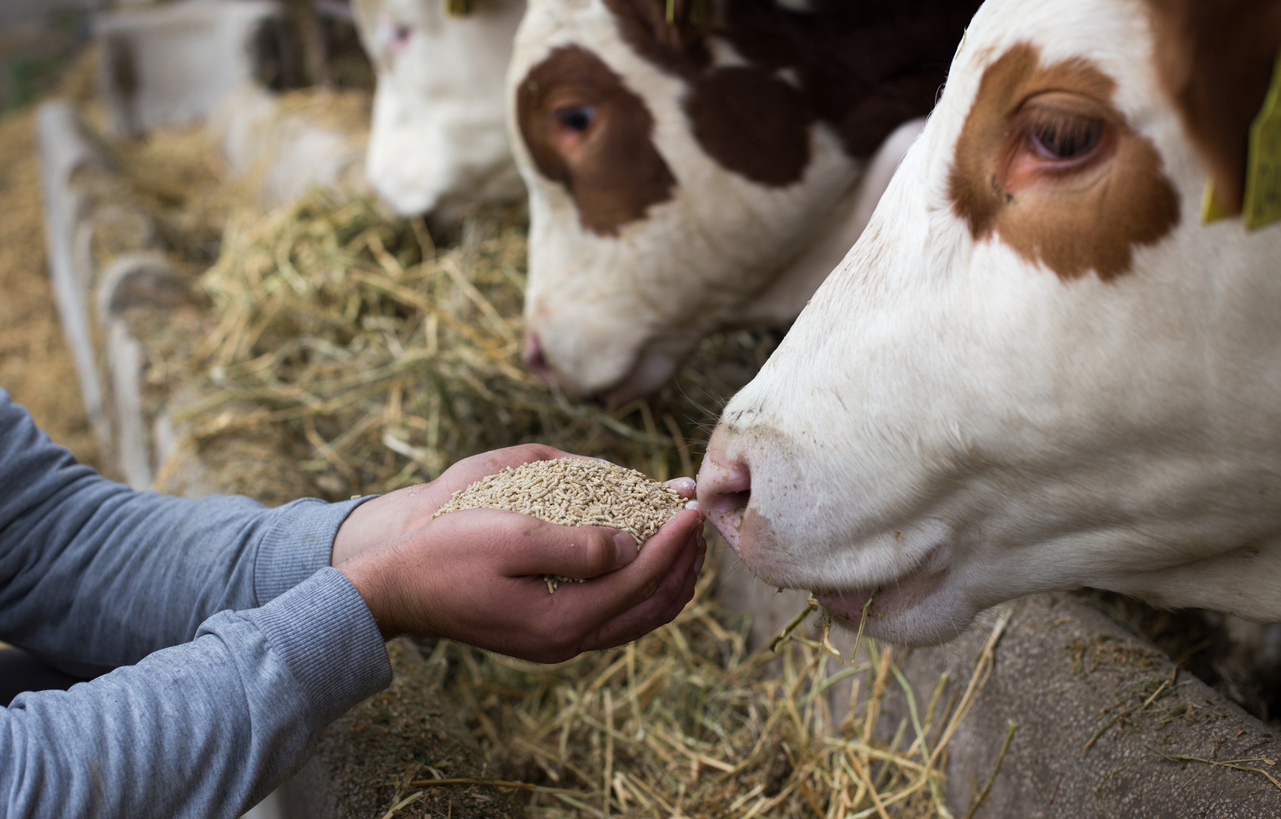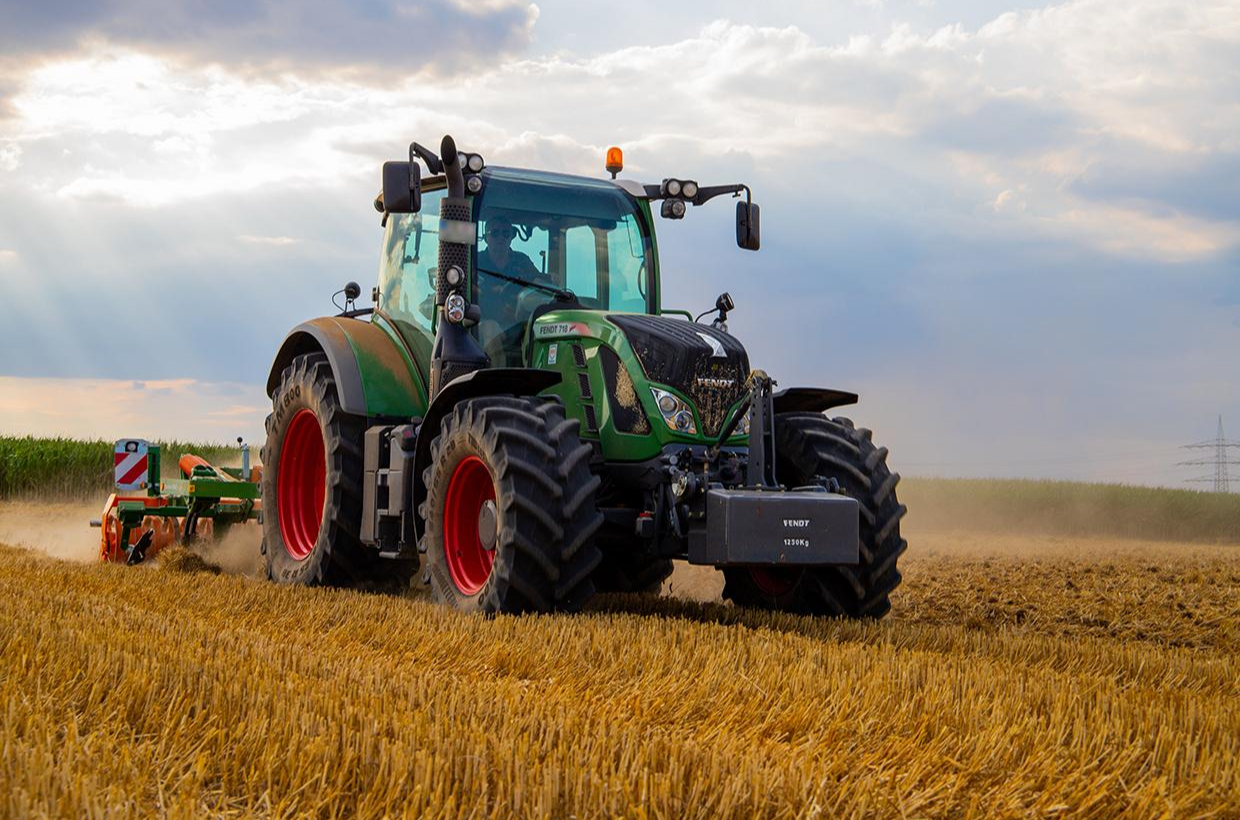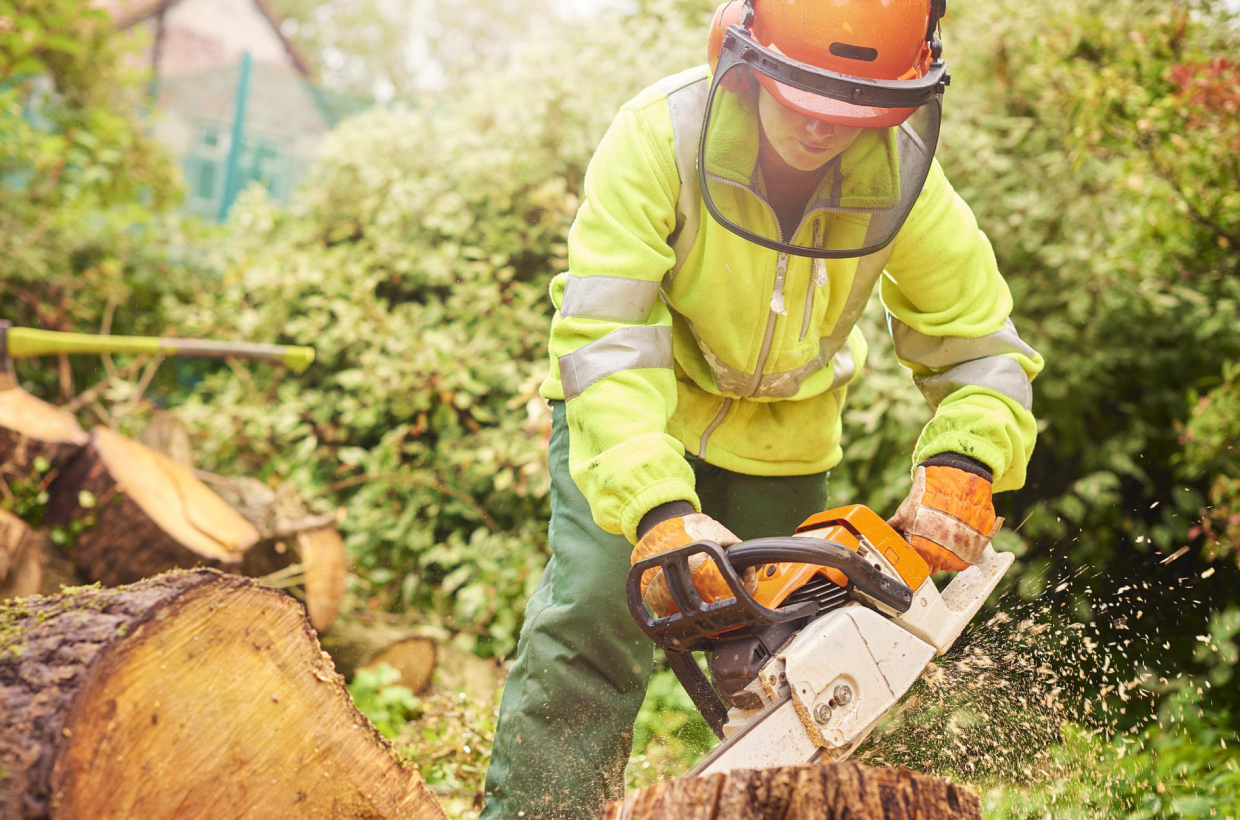
Animal Nutritionists are scientists who analyse the nutritional value of feeds and provide dietary advice to staff from all industries working with animals, such as agriculture, animal care, equine and aquaculture.
Animal Nutritionists promote a better understanding of the effect of diet on the health, wellbeing and productivity of animals. They provide advice and information on animal nutrition and design and evaluate the diets of the animals working with. Some Animal Nutritionists choose to specialise in one type of animal. Others look at nutritional disorders and find ways to prevent the animal from suffering by formulating new food programmes.
You’ll need:
an interest in, and understanding of, the science behind nutrition
an enthusiasm for animals and their welfare
to analyse and solve problems, and enjoy working in laboratory conditions
excellent communication skills, enjoy working with people and sharing your knowledge with different audiences
customer service skills, forming long-term relationships with clients
to enjoy working in a team, but confident working independently
to produce reports – use of computers and statistics software will be beneficial
A driving licence is necessary - you may be given access to a company vehicle or be expected to use your own and claim back mileage.
Around 40 hours per week, however working hours can vary and may be irregular if visits to clients are required in the evening. Weekend or shift work is not common.
Travel within the working day is often required and overnight stays may sometimes be necessary.
Evaluate the nutritional value of feeds
Develop nutritional and feed plans for animals to maximise growth, reproduction, health and performance
Visit sites and provide advice on nutrition to clients, animal owners and veterinarians
Compare and assess the nutritional and economic value of feeding systems
Conduct research, trials and write reports on findings
Monitor feed formulations to meet quality performance and animal health standards/legislation
Support commercial teams in producing and launching new products, and support sales and marketing strategies
Animal Nutritionists will spend time between laboratories, offices and with the animals in all weather – clothing requirements include a white coat for the lab, smart clothing for meetings and waterproof outdoor clothes and boots for work on sites. Much of your time will be spent working alone and travelling between locations, with regular team meetings.
Training is an essential part of any job, giving you the skills and knowledge you need to do your job safely and correctly. It also helps to strengthen your current skill set and prepares you for the next stage in your career.
Apprenticeships help you build the experience and skills that employers want to see. No matter what stage you’re at, they’ll help set you up for a bright future. There are lots of ways to get involved.
After gaining some experience, it's possible to become a self-employed specialist consultant. Alternatively, you could take on a role in research, sales or marketing in a commercial animal feed production company or teaching courses in a college or university.
Animal Nutritionist will usually work in one of the following industries. Click below to find out more about possible career paths.
Fish, shellfish and seaweed are all ways we can help to feed our growing population, making careers in the varied world of aquaculture more important than ever before.
Aquaculture means the ‘farming’ of all kinds of animals and plants that live in the water – fish, shellfish and seaweed. Jobs in aquaculture include farming, working to restore threatened and endangered populations, habitat restoration and looking after aquariums and fish cultures. It’s a growing industry playing an important part in providing sustainable sources of protein to feed our growing population.
Scotland is Europe’s largest producer of Atlantic salmon, directly employing 2,500 people in salmon production, plus many more in the processing and supply chain. The UK also produces fish like rainbow trout, brown trout and halibut, as well as shellfish like mussels, oysters and scallops. Seaweed is also grown and harvested on a small scale – but the industry is expected to grow as we discover new ways to use seaweed in medicine, food and animal feed, and even combatting climate change.
Aquaculture is an important source of employment in the UK’s most remote, rural communities and offers career opportunities all over the world. As well as looking after animals’ health and growth, you could also specialise in science and research to make the industry more sustainable, or design new tech to reduce water pollution and feed waste.
In the Republic of Ireland, fish and shellfish are farmed in 14 Irish coastal counties; salmon, mussels and oysters are the main farmed species in the country. The industry sustains 1,833 direct jobs in remote rural areas with 80% located in the west of Ireland
Aquaculture is a varied industry with nearly 1,700 production sites across the UK
In Scotland, Atlantic salmon production dominates, employing 2,500 people directly and paying an average salary of about £38,000
Most aquaculture businesses in England, Wales and Northern Ireland are small to medium-sized enterprises (SMEs), with over 80% of businesses employing less than 5 people
There are 319 aquaculture sites in the Republic of Ireland.
In 2021, the aquaculture industry in the Republic of Ireland was valued at €175m
Diverse, dynamic and rewarding – if you’re practical and love the outdoors, then a career in agriculture could be for you.
Agriculture is diverse, dynamic and rewarding, with a huge range of interesting and varied career options. If you’re practical, hardworking, love the outdoors or have a passion for science and technology then working in agriculture could be for you.
The UK and Ireland's farmers and crofters play a huge part in looking after our natural landscape. While producing food, they can improve biodiversity, plant trees, restore peat, improve water and soil quality, and generate renewable energy. From the latest trends in data science to new methods of animal husbandry, land management and ecology, working in agriculture is a direct way to address the climate emergency, as well as supporting rural life.
If you’re interested in technology, you could work on a farm using the latest equipment and science to produce food sustainably, safely and efficiently. Or if you want to radically change how we produce food and use our land working vertical farming or remote sensing could be for you. More than ever, agriculture needs innovative, enthusiastic people to help make the food we produce both taste good and make good sense for the planet.
Utilised agricultural land use stands over 70% of the total area of the United Kingdom and over 82% of the Republic of Ireland
Total income from farming in the United Kingdom is estimated to have been £4.1 billion in 2020
Economists at Teagasc estimate that in 2021, the average family farm income in the Republic of Ireland increased by 20% from the previous year
Principal destinations for UK food, feed and drink exports include the Republic of Ireland, France, the USA, and the Netherlands
From cats and dogs to endangered species, taking care of animals is a rewarding and interesting career path.
59% of households in the UK own a pet, according to a recent survey by the Pet Food Manufacturers Association, while in the Republic of Ireland, this increases to an estimated 61%, so if you want to build a career around working with animals then you’re going to be spoilt for choice. Job roles are incredibly varied – if taking care of domestic animals like cats and dogs isn’t for you, why not think about veterinarian work where you help look after wildlife or livestock? Or if you go wild for exotic species, why not explore the dynamic worlds of conservation and zookeeping?
The choices are endless and every role – and route into it – is different. It’s worth spending a little bit of time thinking about your strengths and weaknesses, as well as the kind of animals you’d like to work with – we’ve put together a few options for you to think about.
Over 120,000 people work in Veterinary and Animal Care services occupations in the UK.
Between the RSPCA, SSCPA and USPCA charities, over 32,000 animals in the UK were rehomed or released in 2020
There are over 1,500 veterinary businesses in the Republic of Ireland, employing almost 4,000 people
During 2021, the Dog Trust charity in the Republic of Ireland received 2,155 requests from people wanting to rehome a dog, and increase on the previous year of 82%
Turn your love of horses into a fulfilling career – explore the equine industry’s exciting career prospects.
Covering everything from working in competition and race yards, riding schools and professional horse training, there are lots and lots of different career opportunities in the equine industry. If you love horses and are happy to work hard in all weathers, this could be the perfect environment for you.
Whether you chose to work in coaching, racing or trekking, you could work as a groom, instructor, yard manager or trainer. There are also lots of varied support roles available too – such as becoming a farrier, a vet and or even a specialist equine dentist.
The Equine industry supports approximately 900,000 horses and 2 million riders in the UK
The economic value of the equestrian sector to the UK is £4.7 billion
The number of horses in training to race per year has remained between 22,000 and 23,500 for 5 years in a row
The Irish equine breeding and racing industry generates over €1.8bn in economic activity and supports almost 29,000 jobs
These courses are perfect if you are starting out on your career but they are also great for people already in jobs who want to improve their skills.
To find out more about qualification levels in England please visit Regulated Qualifications Framework (RQF) for England and Northern Ireland or Framework for Higher Education Qualifications for England, Wales and Northern Ireland (FHEQ) .
To find out more about qualification levels in Northern Ireland please visit Regulated Qualifications Framework (RQF) for England and Northern Ireland or Framework for Higher Education Qualifications for England, Wales and Northern Ireland (FHEQ).
To find out more about qualification levels in the Republic of Ireland, please visit National Framework of Qualifications for Ireland (NFQIE)
To find out more about qualification levels in Scotland please visit Scottish Credit and Qualifications Framework (SCQF).
To find out more about qualification levels in Wales please visit Credit and Qualifications Framework for Wales (CQFW) or Framework for Higher Education Qualifications for England, Wales and Northern Ireland (FHEQ).
| Title | Level |
|---|
These courses are perfect if you are starting out on your career but they are also great for people already in jobs who want to improve their skills.
Whether you’re just starting out in the workplace, want to upskill or are considering changing direction, Apprenticeships are a fantastic way to build your career. Apprenticeships combine work with on-the-job training, so if you want to earn as you learn, there’s an apprenticeship out there for you – you can even start an apprenticeship if you already have a degree.
Work, earn and learn – no matter where you are in your career, an apprenticeship can set you up for a bright future.
Let’s get started!
Want to take on an apprentice? Employers start here.
An apprenticeship is a unique blend of work experience and study to help build the skills and knowledge you need for your career. Apprentices are employees – they have a contract, are paid and get the same benefits as everyone else. But the difference between an apprenticeship and a normal job is that apprentices are regularly released from work for training. Sometimes that’s a day a week, sometimes it’s for a longer block – it all depends on the job and the apprenticeship.
Apprentices work for all kinds of people at all kinds of stages in their lives. Most apprentices fall into one of three categories:
Previously restricted to school leavers and young people, apprenticeships are now a dynamic way of retraining people of all ages - there’s no upper age limit. The minimum age to become an apprentice is 16 and candidates can’t be in full-time education.
Apprenticeships offer a unique combination of paid work and study. They’re an exciting option for anyone who wants to gain experience, upskill or change career while working.
They offer a chance to work, learn and earn:


Interested in becoming an apprentice? Search for current opportunities and apply here.
Find your apprenticeship
You can also check vacancies on employer websites or get in touch with your local careers service.
What’s it like to work, earn and learn? Find out what apprentice life is really like.
Explore apprenticeship stories
The British Society of Animal Science
Find out more
Seafish
Find out more
Salmon Scotland
Find out more
Sustainable Aquaculture Innovation Centre (SAIC)
Find out more
Institute of Aquaculture – University of Stirling
Find out more
Association of Scottish Shellfish Growers
Find out more
Shellfish Association of Great Britain
Find out more
Scottish Seaweed Industry Association
Find out more
British Trout Association (BTA)
Find out more
Aquaculture Industry Wales
Find out more
Wales Young Farmers’ Clubs (Wales YFC)
Find out more
Young Farmers’ Clubs of Ulster (YFCU)
Find out more
National Federation of Young Farmers' Clubs (NFYFC)
Find out more
NFU Cymru
Find out more
Farmers' Union of Wales
Find out more
National Farmers Union Scotland (NFU Scotland)
Find out more
Ulster Farmers Union (UFU)
Find out more
Scottish Association of Young Farmers Clubs (SAYFC)
Find out more
National Farmers Union (NFU)
Find out more
British Horse Society
Find out more
British Equestrian
Find out more
Thinking about your finances is important when you're looking at courses and training - different types of funding support is available depending on what type of course you're interested in and where you are located. We recommend you contact the training provider for more information on course costs and financing, but here are some links to connect you to support available:
Skills Hub Scotland is an online skill sharing marketplace creating new opportunities to learn and share skills. Wherever you are located - if you have a skill to share, or a skill to learn, Skills Hub Scotland can help.
Initially founded as a response to the Scottish Government’s CivTech 5 programme in 2020 and aiming to offer a platform for those in rural or remote locations, Skills Hub Scotland has been developed into an important sectoral resource. If you have a skill to share with others or are a training provider, list your workshop or course (all skills from all sectors are welcome). If you are a learner, use Skills Hub Scotland to search for and book a course!
STEM is an approach to learning and development that incorporates the areas of science, technology, engineering and mathematics. Learning in STEM connects to Education for Sustainable Development/Learning for Sustainability and the Sustainable Development Goals – this helps learners to understand that STEM plays a vital role in finding solutions to real world issues or challenges such as protecting biodiversity and tackling climate change. There are multiple pathways into a land-based STEM career including apprenticeships, further and higher education. This means that a career in STEM is open to everyone!
STEM Learning is the largest provider of STEM education and careers support in the UK. Their STEM Ambassadors programme sees volunteers representing a vast range of STEM-related jobs work with young people to bring STEM subjects alive through real life experiences. They help to open the doors to a world of opportunities and possibilities which come from pursuing STEM subjects and careers. To become a STEM Ambassador, you can register via the STEM Learning website: https://www.stem.org.uk/stem-ambassadors/join-stem-ambassador-programme
Lantra have worked in collaboration with STEM Ambassadors in Scotland to create two specific UK-wide Ambassadors schemes - Forestry and Aquaculture. Through these schemes, we want to make sure that those working in forestry and aquaculture have the support materials they need to take part in STEM activities. To find out more and register for the schemes, please follow the links below:
Smart Futures helps young people in Ireland discover the STEM subjects and careers that might be right for them. Co-ordinated and managed by Science Foundation Ireland, their programme allows young people to connect with people that are working in STEM, the organisations they’re working in and what their interests and skills are.
Why not take a look at the Industries Explorer as an introduction to the different areas you could work in.
If we can support you with any specific information, please click the button below to get in touch.